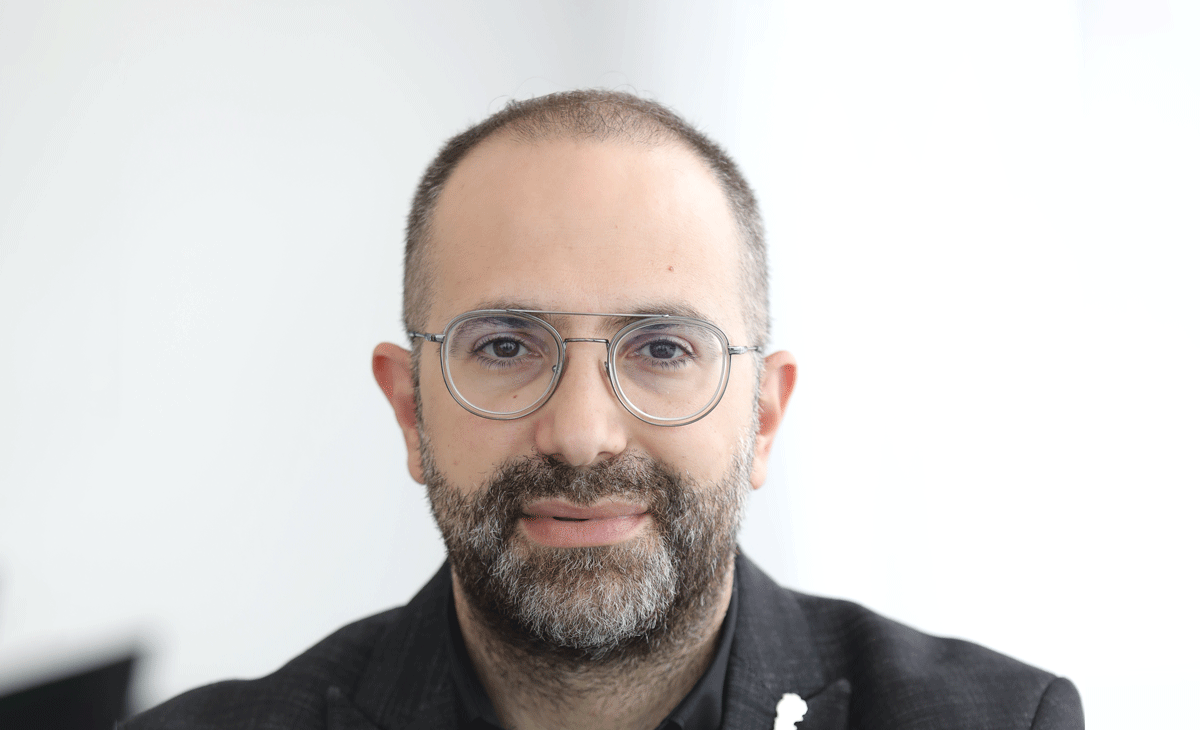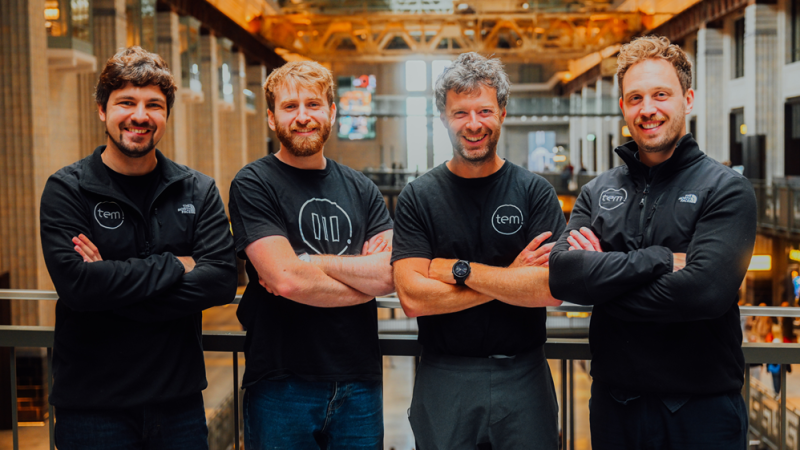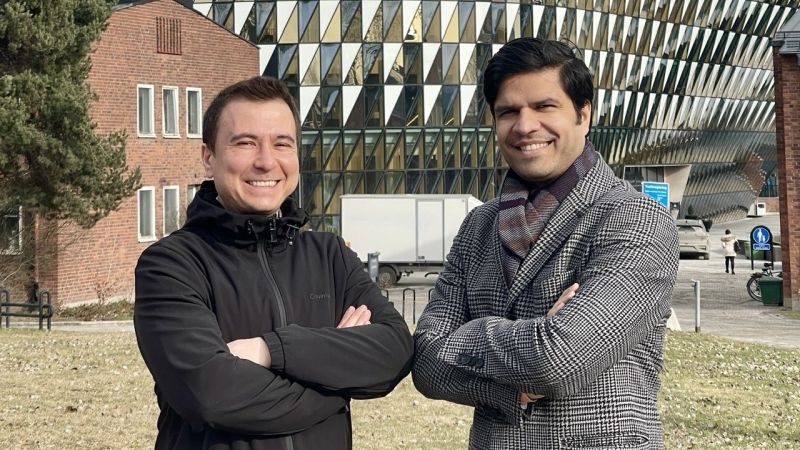In Lusaka, the capital of Zambia, Medland Hospital serves as a healthcare hub for the entire region. With its extensive facilities, the hospital is well-positioned to offer the kind of specialised medical services that cannot be found elsewhere in the private sector. The facility is particularly well-equipped for cardiovascular surgery, surgical oncology, and advanced orthopaedic surgery.
When we last spoke with the hospital’s leadership, it was still dealing with the consequences of the Covid-19 pandemic. When we speak with them again today, the hospital has come a long way, but that impact is still being felt.
“We have been adapting to the new norms in medical services offerings, because things are not the same after the pandemic,” says Dr Mohamed El Sahili, CEO of Medland Hospital. “Things are different on multiple levels. If you look at any aspect of healthcare, it has totally and in some cases drastically changed.”
El Sahili points to the new concerns around supply chains. He acknowledges that it is impossible to reply completely on local distribution, especially in a country like Zambia, but at the same time acknowledges the need for the facility to be prepared. New hospital requirements and challenges can change rapidly in the face of a large-scale emergency, and part of meeting that challenge is ensuring supply chains are not disrupted. Medland Hospital’s entire procurement planning needs to be thought out with this in mind.
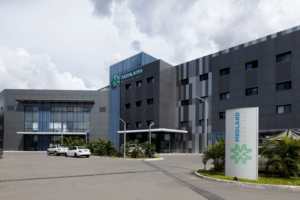 New Models of Care
New Models of Care
At the same time, patients’ attitudes to hospital stays have changed the world over, with care models shifting from long in-patient care to a more home-based approach.
“Homecare is more and more a service that people are looking for,” El Sahili says. “At the end of the day, if we can provide the medical service at home then that is often the best environment for the patient to be in.”
As patients are growing keener to be treated in their own homes, simultaneously a shift is also happening where many are actually willing to travel further than ever to receive the care they need.
“It is more evident than ever that we have to invest more and more locally in meeting the needs of regional medical tourism as well as international medical tourism,” says El Sahili. “If you are not a cosmopolitan, well-known country it is not easy to build an international medical tourism identity, but we have begun to do that.”
This all means that the building of Medland Hospital itself has also had to undergo an architectural upgrade to prepare not only for new patients but also for any future pandemics or lockdowns.
“You cannot shut down whole departments, but you need to have control over who comes in and out and what systems are in place, and interior design must take that into account,” El Sahili shares.
This is not the only way that Medland Hospital has been changing. It has also been working to become more sustainable, combining the agility the hospital is known for with a commitment to greener, more environmentally friendly healthcare delivery.
“We have engaged with international partners, forging partnerships in regard to sustainability alongside other agendas,” El Sahili says.
Medland Hospital has become the first private African health facility to join the Race to Zero, committing to a 30% decrease in CO2 emissions by 2030. Achieving those goals will mean navigating challenges, however, particularly from a regulatory standpoint.
“The biggest challenge is the lack of proper regulation when you take into consideration the financial, taxation and environmental legislation around this area,” El Sahili points out. “At the same time, I must admit that we are lucky in Zambia in that we have a government that is committed to developing a green business environment. This facilitates the dialogue between private and public sectors, but there is still a lot to be done.”
El Sahili believes that a part of this challenge is a public relations one, with many people not understanding the wider risks of climate change.
“There is a lot to do in terms of educating the general population and bringing everyone on board with this agenda,” he says. “We have seen some movement there, and I think we owe that to the UAE because of the commitment they have shown to the sustainability agenda at COP28. The dedication they have shown to work beyond has encouraged countries like Zambia and other developing countries to get on board, which has a positive impact overall.”
That model of international cooperation is one El Sahili seeks to learn from.
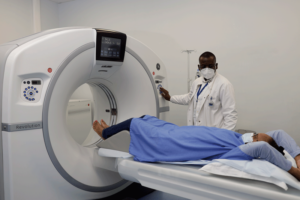 Global Partnerships
Global Partnerships
In our conversation with El Sahili, it is abundantly clear how essential he believes international cooperation is to achieving Medland Hospital’s goals, both for the environment and for healthcare.
“We are asking our partners in developed countries to really commit to investing in facilities in developing countries,” El Sahili says. “We have a weaker purchasing power, so these partnerships are critical in facilitating our goals. People here are eager to be healthy, but sometimes they do not have the means. By enhancing the relationship between facilities, suppliers, and insurers, we can create a positive impact, reducing the overall healthcare bill in Africa and developing countries in general. We are helping everyone in building healthier communities.”
As for Medland Hospital’s role in building those healthier communities? El Sahili has big plans.
“Obviously there is the need to expand in terms of services and presence, but now that people are aware of Medland Hospital we are not just able to provide more medical services, but also to empower more talent, empower communities and work towards creating a new and different way of seeing the healthcare sector,” he tells us. “With the partnerships we have built in the healthcare sector in terms of strategy building and improvement, I think there are a lot of positive things that are going to happen soon.”
